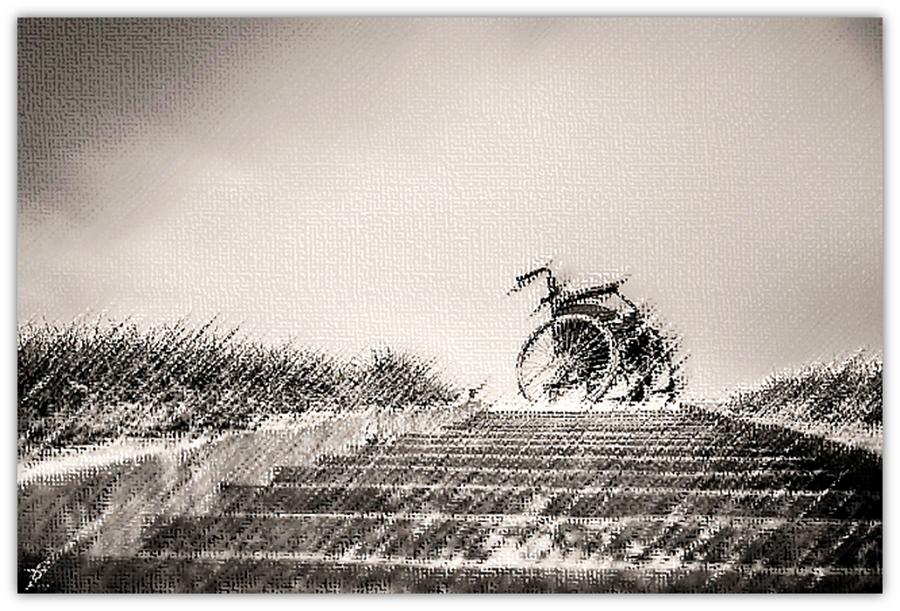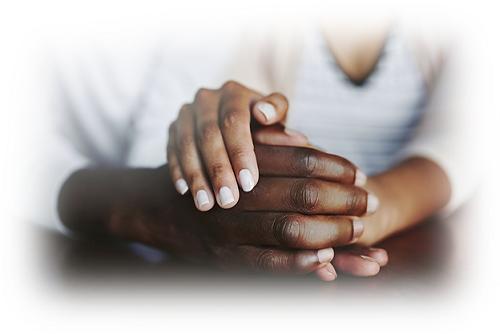Kingdom and Priests Belong Together
Kingdom and Priests Belong Together

In pastoral work we meet a lot of suffering. But suffering in and of itself is an abstract concept. It is people who suffer. Suffering consists of the worries, the pain, and the sorrow of our brothers and sisters and when suffering enters my life, it is my personal suffering. I can talk about it with others, share it to some extent, but it remains a personal experience. When we are suffering it is so important to be surrounded by real compassion, real love, and to have hope in God’s kingdom.
On a visit to the hospital, next to the member of my congregation I am visiting, lies a woman who is blind and deaf. Talking with her is impossible. She is about fifty years old. When she was six she suffered brain damage. Any communication is impossible, unless one has special training. She is a human being, a person like me, with thoughts and feelings. But she is lonely, shut off, so vulnerable lying in a hospital bed.
Visiting a home where people with severe disabilities live and are lovingly taken care of, I reflect. So much has been destroyed in a creation of which, in the beginning, the Lord said that it was good, and so much has been damaged in man as image of God.
Compassion⤒🔗
Feelings of powerlessness but especially feelings of compassion come over us. We experience a taste of the compassion that filled Christ when he sought out the people who were lost. Always he was moved with mercy. He is the High Priest who gave himself in a love that supersedes all human measure. At that moment we see it. At that moment we experience it. Now we see everything differently: the fellow human being with a disability, someone with whom little or no communication is possible, a human being created by God, meant to honour and praise God for ever, but now this. When I (until now) enjoy health and strength, I can almost feel guilty, for I am not better or more worthy than the fellow human being with the most severe disability. How the Saviour was moved by limitless love. The tender mercy of his Father lived in his heart (Luke 1:78)—that is how he approached them, that is how he tried to win them: because of love and through love. Driven by mercy, he is the priest, the High Priest.
Respect and thankfulness fill our hearts once we see how patiently and lovingly the caretakers and their assistants deal with their fellow human beings who are disabled. What patience, what wisdom, what feelings of empathy and sensitivity they exhibit. How rich one is when allowed to give oneself in service to such a damaged human being. For we have all been damaged by sin and we all depend on the compassion and faithfulness of God, of our Lord Jesus Christ. What if he would not continue to stand in for us!
The Uniqueness of Compassion←⤒🔗
Love—compassion—is more than knowledge, more than anything else, and its source is Jesus Christ. His love lives in our hearts. When the Spirit lives and works in our hearts, love will live and work there as well. There compassion will spring up and it will astound us and we will become still with wonder. We will be dismayed thinking of all the times that we lacked seeing with eyes and hearts full of compassion, that we more or less took it all for granted that we were not disabled. It is not the stout and the strong, not the noble and the great ones that are pleasant in the eyes of him who created us to know and to love him with pure and simple hearts. We need to go and learn what is meant: “I desire mercy and not sacrifice” (Matt. 9:13). Words from Scripture speaking of a day of the Lord against everything that is high (e.g., Isa. 2) will have new meaning for us.
Looking around we see a world in which the powers of the devil are so obvious. Looking out for others, our neighbours, has been replaced by looking out for myself. It results in self-indulgence without limit, in desires that always ask for more and cannot be satisfied. It results in hardness and coldness. Real love disappears and people are left with a counterfeit love. In the meantime God’s beautiful people are spoiled. Their sin is that they do not acknowledge their Creator.

Being a Priest←⤒🔗
How much spiritual power do we have as churches to show to and in the world something of the love and compassion of Christ? We have words, but they must be accompanied by actions.
Every Christian is also a priest. Our confession in Lord's Day 12, says this: that we present ourselves as living sacrifices of thankfulness to Jesus Christ. We are a living thank offering. In the kingdom of Christ, we are also prophets and kings, but service as priests should never be forgotten by Christians. Peter writes in 1 Peter 2:9: “But you are a chosen race, a royal priesthood, a holy nation, a people for his own possession, that you may proclaim the excellencies of him who called you out of darkness into his marvellous light.” Being prophet and priest interconnect beautifully. Love holds them both together. The same goes for being a king; through the compassion of Christ we purify our minds, freeing us to continue the fight against sin and the devil. That royal battle continues our entire life.
Do our children know us as a priest? Or our grandchildren? How are we known in this respect? Does Christ's image shine through us? That is only possible when he has manifested his image within us. Anyone who is permitted to live as a priest also experiences many beautiful moments of the kingdom, because the kingdom is found in those places and under those circumstances where it is least expected. This glory of the kingdom, the glory of compassion, cannot be found in the world, because Christ is present in this glory.
Being Church←⤒🔗
As Reformed churches we want to be a church of Christ. That is more easily desired than practiced and realized. “If I have not love, I am nothing” (1 Cor. 13:2). “If anyone has no love for the Lord, let him be accursed” (1 Cor. 16:22).
We have so much to plan for, so much to do, so much to discuss in our meetings, and it is all true and almost always useful, but that should not become a goal in itself, as so easily happens. The beating heart of the congregation is love, compassion and grace by which our countless and great sins are forgiven. And whoever has been forgiven much, shows much love and has received a grace-filled heart full of compassion, having had enough of quarrelling about non-essentials. Let all our work in the coming season serve to assure that the image of Jesus Christ will take shape in our congregations, and therefore in the individual members of our congregations. That should probably begin in our church councils and in our congregational meetings.
I do not mean this in an “over-spiritualized” sense: as if the work does not need to be done, as if sometimes our hands don't get dirty a bit, our spirits tired and our hearts disappointed. We are and remain churches under the cross. In this life the reality of the cross is not removed. But where we are churches under the cross, there we also experience the blessing and the joy of the cross, and then that place under the cross—through faith—is still the best place. It is a place of light in the darkness and this light is permanent; in this place priests are born.
Once we were without compassion. It moves us whenever we meet people who are without compassion. It motivates us as priests to be prophets. Evangelism remains the main task of every congregation. Even if a congregation were to consist of only fifteen members, then she still is a congregation of priests and prophets and that should be “normal” in her everyday life, not in a fictitious and idealized dream-world kind of way, but in our common and seldom romantic everyday kind of life. Christ is among real people in their daily lives. He is a real Saviour of real sinners.

It is tragic to leave people without compassion while we are able to provide it. I visualize a priestly church, a church at the feet of the High Priest. That church lets itself be filled with the compassion of her High Priest, who daily prays for her. We learn to see with the eyes of Christ. A faithful bond builds up between his heart and ours; Christ among us: the High Priest.
We are busy with many things, with much church business and many problems. Time and money are being spent and sometimes wasted on matters that would never have been allowed to exist if we had exercised the compassion of Christ. Weighty, trivial, in-between or other nuances: where are the priests? Is Christ in us?
Is then the choice of church of no importance? Certainly it is; it is certainly biblical to address the question of true church and to reflect on her borders. But if there is no compassion, no priestliness, no persuasion of Christ, then all those church labels are filth. We need to say this as it is: we are too soft-minded, or too orthodox-minded or too liberal-minded or whatever other-minded, but who has the mind of Christ?
The kingdom and the priests belong together. I have passed on a few thoughts that have lately kept me busy in the hope that others can benefit from them. He who sets out from the priestly aspect of being a Christian does not have to look forward to a new season with dread; but first Christ has to be in us! Let there be fervent prayer that the Spirit of Christ make you and me and all of us priests.

Add new comment